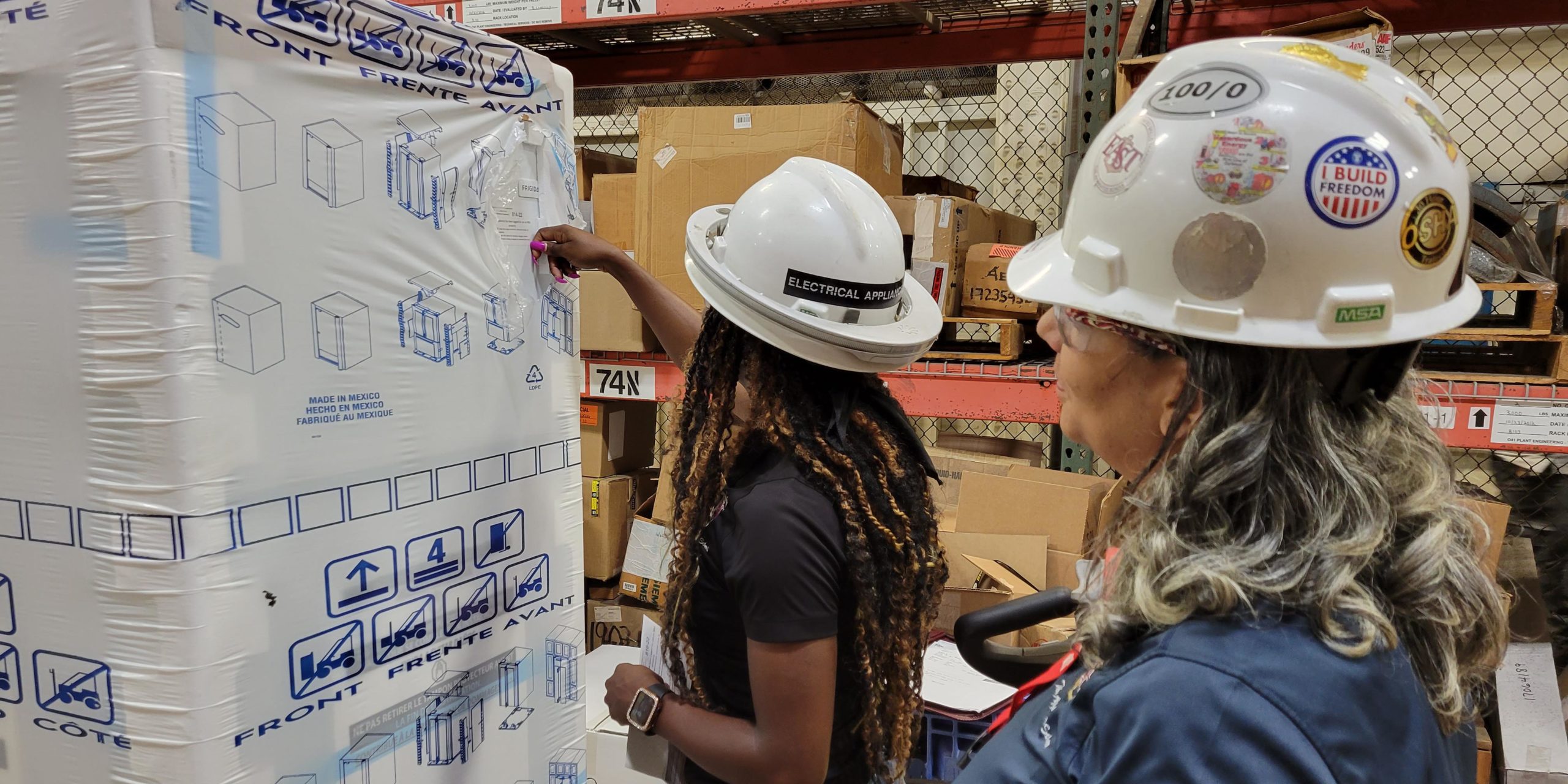 Tamika Armstead, left, and Vivian Lopez prepare to put stickers on newly arrived appliances. Photo by Nicholas Langhorne
Tamika Armstead, left, and Vivian Lopez prepare to put stickers on newly arrived appliances. Photo by Nicholas Langhorne Appliance Inspections Help Minimize Fire Risk
Published September 13, 2022
From refrigerators and coffee makers to space heaters and even griddles, Tamika Armstead (O43) is responsible for inspecting about 20,000 company-owned and personal appliances across Newport News Shipbuilding.
It’s all an effort to keep employees safe and protect company and U.S. Navy assets. “What we’re really trying to do is avoid fires,” Armstead said.
Appliances must be approved by Environmental Health and Safety (O27) and Security (O15) and are inspected and stickered when they are first brought into the shipyard. Company policy requires reinspection every five years. However, the process was less than ideal. Past due emails were sent to supervisors instead of the employees responsible for appliances, and inspections had to be requested.
That was until Armstead overhauled the process. “Tamika came up with a zone system to get us ahead of the game,” said Vivian Lopez (O43), Armstead’s manager.
In 2020, Armstead made her way through the South Yard, visiting every facility to locate and inspect appliances. The idea is to go through a different zone – South Yard, Mid-Yard, North Yard and outlying buildings – each year.
“Since our inspections are once every five years, the South Yard will need to be reinspected in 2025. However, we only have four zones. So in 2024, we can start going through the South Yard a year early to stay ahead of those past due emails,” Lopez said. “It takes the burden off of the owners of the appliances to put in inspection requests.”
As she goes through the zones, Armstead inspects appliances that are in plain sight. That means inspections still need to be requested for appliances that are tucked away or in locked spaces. If she comes across something that requires attention – such as a frayed power cord or an appliance plugged into a surge protector or extension cord – Armstead said she tries to provide context about why it is unsafe.
“I am an electrician, so I can explain how this is a real-life safety issue,” she said. “A lot of people honestly don’t know they’re doing something wrong. They’re not thinking about a microwave being a fire hazard, but it can be.”
Instead of filling out paper forms that have to be sent via Yardmail, appliance inspection requests can now be submitted on the Appliance Inspection Hub on MyNNS, which also makes it easy for employees to update information about appliances, including new locations. Each department also is required to have an appliance coordinator.
Also in the works is a “trash and treasure” document where departments can list appliances they no longer need. “It’s reducing trash and saving money for a department if they are looking for a microwave – for example – and another department has one available,” Lopez said.
The changes have already impacted appliance inspection statistics. At the beginning of the year, there were nearly 450 past due appliance inspections at NNS. By August, the number was down to zero. Armstead plans to keep it that way. “We just have to maintain,” she said.